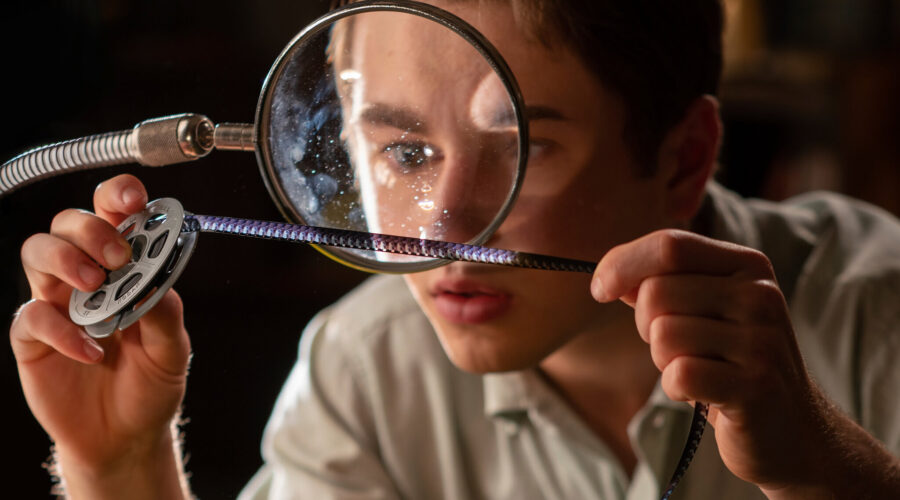Watching The Fabelmans is such a bitter pill to swallow. You’ll love it and loathe it in equal measure. The sheer exhilaration from watching the young Steven Spielberg discover his genius for film making is equally tempered by the fact that most of us in the audience will look back on our lives with a blockbuster-sized inferiority complex and a gargantuan sense of underachievement. We should have been making up our own stories rather than lavishing time in the darkness watching Spielberg’s. Or at the very least, repackage his brand of nostalgia for Netflix by creating Stranger Things.
Thankfully, in The Fabelmans we have the real thing. Sort of.
The Fabelmans is Spielberg’s semi-autobiographical movie, a glorious homage to cinema and more mischievously, an audacious act of self-aggrandising. A monument to his own mythology and tricky, it is a repackaging of his old preoccupations, childhood, divorce, suburbia, and of course movie making.
Where does Spielberg’s life stop and the art begin? In this case he’s Sammy Fabelman, not Steven Spielberg. Perhaps 50 years as arguably the greatest director of his generation has blurred myth and reality; Spielberg’s life has become art, is art.
Are his recurring themes and motifs, so over examined by cinephiles, morphed into his own memories, or is he just straight fucking with us?
Why create Sammy Fabelman at all when we know he’s really Steven Spielberg?
In his essay, The Decay of Lying – An Observation, Oscar Wilde believed that life imitated art far more than art imitated life. He wrote, “Lying, the telling of beautiful untrue things, is the proper aim of Art.” The proper aim of The Fabelmans is not to tell the objective truth of Spielberg’s family break up and his virgin celluloid adventures, but to spin a truthful tall tale the way the great and grandiose directors and stars of Hollywood could before Nazi #FilmTwitter fact checked them to oblivion. Is that Orson Welles anecdote about Churchill true? And so what if it wasn’t? Don’t we love Orson Welles a whole lot more for the fact he might be lying? And if so, what a brilliant, truthful lie to tell.
Spielberg exudes the charm of the amiable film nerd, but his movies have grossed over 10 billion dollars. There’s a ruthless streak there, just look at the Kitner boy’s horrific death in Jaws, Shortround’s treatment in Indiana Jones & The Temple of Doom or the cold-blooded destruction in the criminally underrated Munich. An Oscar-nominated cameo by Judd Hirsch as Spielberg’s uncle snaps like Quint on the deck of the Orca, “Art is no game. It is as dangerous as a LION! It will BITE your head off!” Just look at his costly divorce to Amy Irving, believed to be one of the most expensive settlements in history.
The film may delve deep into the breakup of his depressed, brilliantly artistic, wistful mother from his genius engineer father (Michelle Williams and Paul Dano both magnificent) and the joy and trauma of navigating those turbulent relationships, but Spielberg the artiste, the intuitive maestro flicks his wrist and dazzles us with sequences that too many of us take for granted. Boy are we gonna miss him when he’s gone. Watch when Sammy edits his family camping trip film, how the camera dances around him until he gradually picks out the smallest detail of infidelity between his mother and their close friend Bennie. Did we see that in Minority Report? Or did Minority Report reveal itself in The Fabelmans?
The sequence is a miracle, not just of memory or artistic interpretation of that memory but how that moment must have felt for Spielberg, an out-of-body experience watching himself view the destruction of his old self as he finds out his parents are not the gods he thought they were. Or is he lying to us for the best possible reason, for the art itself? Watch the nod to the horizon at the end of the film to help you find the answer. Afterall, Spielberg speaks his truth so we can believe his lies.

